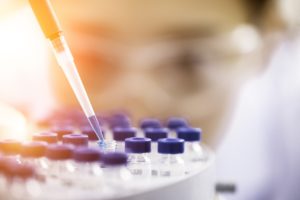Disease mechanisms
Our goal is to uncover the basic mechanisms of human disease. In particular, we are focusing on modern diseases whose incidence has greatly increased over the last decades, including metabolic, inflammatory, and neurodegenerative diseases. The etiology of these diseases cannot be explained solely by human genetics.
Our research is aimed at understanding the mechanistic impact of environmental influences on human physiology, and how such host-environment interactions influence the propensity for common multifactorial diseases.


Molecular phenotyping
We are developing and employing methods for the comprehensive analysis of cellular processes, including genomics, transcriptomics, and metabolomics.
We are using these molecular phenotyping strategies to generate insights into the mechanisms underlying biological phenomena, and to inform mechanistic studies of human disease. Additionally, we are using high-throughput screening approaches to elucidate the impact of specific environmental elements on the metabolic, immune and nervous system of the host.

We are using a large number of animal models for human disease and are generating new transgenic models for our studies.
Our focus is on inflammatory, metabolic, and neurodegenerative diseases.
We use a large range of animal phenotyping platforms, including imaging, metabolic and behavioral testing.

We use an innovative combination of genomics, transcriptomics, epigenetic and metabolomics studies of both the mammalian host and its indigenous microbiome to define molecular signatures associated with disease phenotypes, to generate hypothesis for the etiology of idiopathic diseases, and to identify candidate regulators of human physiology.
We are developing technological platforms for the high-throughput generation of these data sets, with a special focus on single-cell analyses.

We are developing novel computational tools for the analysis of large data sets and their integration into functional models. These include machine-learning algorithms, clustering and visualization tools, as well as data mining programs.
As such, we leverage high-dimensional information for the data-driven identification of disease mechanisms.

To uncover the mechanistic basis of common diseases, we employ a large number of in vitro and in vivo systems that allow us to probe the function of newly identified regulators in disease pathogenesis. These systems range from chemical tools and organoids to newly generated and innovative mouse models.
These platforms allow us to determine the mode of action by which candidate factors influence biological systems and by which they exert disease-modulatory activities.

We perform proof-of-principle studies in human cohorts and harness the naturally occurring inter-individual variability in the human population to gain insight into the regulatory principles that mediate host-environment interactions.
Our goal is to mechanistically link specific lifestyle habits to physiological parameters, thereby deepening our understanding of the molecular links between environmental influences and risk for disease.
Ultimately, our research aims at establishing novel therapeutic principles that can be harnessed for the rational design of new treatments.